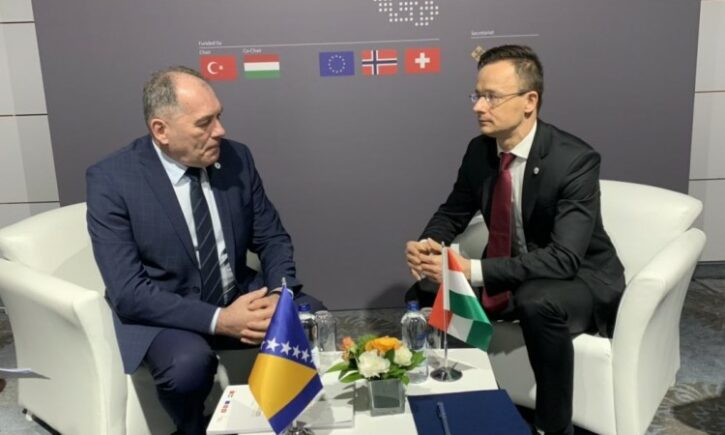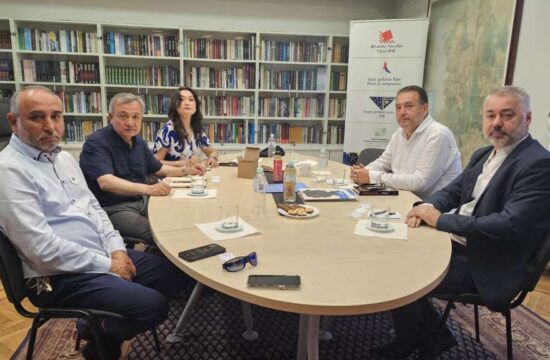
On the sidelines of a ministerial conference of the Budapest Process in Istanbul, the Hungarian Foreign Minister, Peter Szijjarto, offered to Bosnian Security Minister, Dragan Mektic, that Hungarian police assists Bosnian Border Police in securing the border against illegal migration.
Szijjarto said that Hungarian police is ready to assist the Bosnian Border Police in protecting the border against illegal migration, adding that such cooperation already exists in Serbia and Macedonia.
Minister Dragan Mektic is taking part in a two-day conference of the Budapest Process, in Istanbul, which deals with migration issues in Europe.
The conference, which hosts representatives from over 50 European, Middle Eastern and Asian countries, is important for Bosnia because it also hosts representatives from countries that are sources of migration, as well as from transit countries.
The information gathered here will be useful to Bosnian authorities to prepare for future migrant situations.
Bosnia’s position at this conference is that the migrant issue is a global problem which requires a joint approach at the EU and regional level.
Mektic also met with Head of the International Centre for Migration Policy Development (ICMPD), Michael Spindelegger, who announced the opening of a regional ICMPD office which would strengthen their presence in the Western Balkans.
Bosnia’s Security Minister suggested that the office should be opened in Bosnia because of its geographical position, its efforts in finding a regional solution to this issue as well as some other advantages.
Mektic, who is leading the Bosnian delegation at the conference, addressed the participants, saying that some Western Balkan countries, especially Bosnia and Herzegovina, should not fall victims to the migrant crisis.
He stressed the issue of people smuggling as one of the biggest issues regional countries face and that some criminal groups are taking charge of the ‘Balkan route,’ thus earning vast amounts of money.
The Minister added that Bosnia is facing additional challenges because it is on the outer border with the EU, but that it will not allow itself to become a migrant hot-spot.
The Budapest Process is an interregional dialogue on migration which covers the European countries, Europe's Eastern neighbours, the Western Balkans and Central Asia. It provides a platform for dialogue and operational cooperation for over 50 governments and 10 international organisations.



